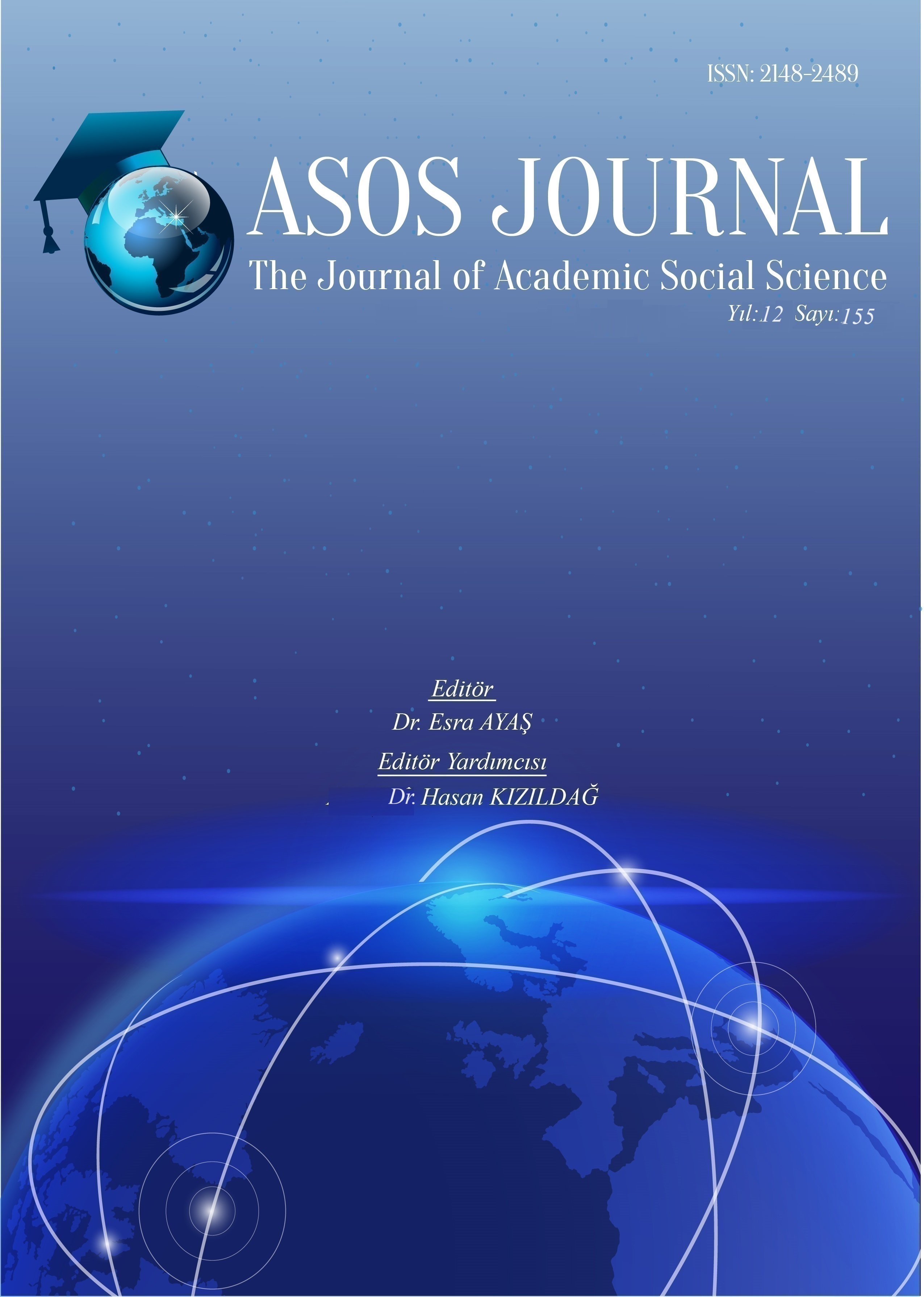BEDEN EĞİTİMİ VE SPOR ÖĞRETMENİ ADAYLARININ 21. YÜZYIL BECERİLERİ ÖZ YETERLİK ALGILARININ FARKLI DEĞİŞKENLER AÇISINDAN İNCELENMESİ
Author :
Abstract
Bu çalışma, Beden eğitimi ve spor öğretmeni adaylarının 21. yüzyıl becerileri öz yeterlik algılarının farklı değişkenler açısından incelenmesi amacıyla yapılan betimsel bir çalışmadır. Araştırmanın evrenini 2022-2023 eğitim öğretim yılında üniversitelerin spor bilimleri fakültelerinde öğrenim görmekte olan beden eğitimi ve spor öğretmeni adayları, örneklem grubunu ise gönüllülük esasına dayalı olarak seçilen 301 (164 erkek, 137 kadın) öğretmen adayı oluşturmaktadır. Araştırmada veri toplama aracı olarak Anagün ve ark., (2016) tarafından geliştirilen “21.yy. Becerileri Öz Yeterlik Algı Ölçeği” kullanılmıştır. Verilerin analizinde SPSS 22.0 programı kullanılmıştır. Aynı zamanda tanımlayıcı istatistikler, t-testi, ANOVA, Kruskal-Wallis testi ve çoklu regresyon analizi gibi çeşitli istatistiksel yöntemler uygulanmıştır. Araştırma sonucunda öğretmen adaylarının cinsiyetlerine göre 21. yüzyıl becerileri öz yeterlik algılarında anlamlı farklılıklar olmadığını ortaya koymuştur, bu sonuç literatürdeki benzer çalışmalarla uyumludur. Öğrenim gördükleri sınıf açısından yapılan analizlerde, genel olarak sınıf düzeyi ile öz yeterlik algıları arasında belirgin bir ilişki tespit edilmemiştir, bu da literatürdeki bazı çalışmaların sonuçlarıyla paraleldir. Genel not ortalaması ve mezun olunan lise türü gibi değişkenlerin öz yeterlik algıları üzerindeki etkisi, literatürdeki çalışmaların sonuçlarıyla uyumlu bir şekilde, bazı becerilerde anlamlı farklılıklar göstermiştir. Aile sosyo ekonomik düzeyinin ve anne-baba eğitim düzeylerinin öz yeterlik algıları üzerindeki etkisi de incelenmiş ve bu değişkenlerin öğrencilerin algıları üzerinde önemli rol oynadığı gözlemlenmiştir. Bu bulgular, ebeveynlerin eğitim düzeyi ve ailelerin sosyo ekonomik durumunun öğrencilerin 21. yüzyıl becerilerine yönelik öz yeterlik algılarını etkileyebileceğine işaret etmektedir. Özetle bu tez çalışması, beden eğitimi ve spor öğretmen adaylarının 21. yüzyıl becerilerine yönelik öz yeterlik algılarının çeşitli demografik ve eğitimsel değişkenler açısından karmaşık ve çok boyutlu bir yapıya sahip olduğunu ortaya koymaktadır. Bu bulgular, öğretmen eğitim programlarının ve eğitimsel müdahalelerin tasarımında önemli katkılar sağlayabilir.
Keywords
Abstract
This study is a descriptive study conducted to examine the self-efficacy perceptions of physical education and sport teacher candidates in terms of different variables. The population of the study consists of prospective physical education and sports teachers studying in the faculties of sport sciences of universities in the 2022-2023 academic year, and the sample group consists of 301 (164 male, 137 female) prospective teachers selected on the basis of volunteerism. "21st century skills self-efficacy perception scale" developed by Anagün et al. (2016) was used as a data collection tool in the study. SPSS 22.0 program was used to analyze the data. At the same time, various statistical methods such as descriptive statistics, t-test, ANOVA, Kruskal-Wallis test and multiple regression analysis were applied. The results of the study revealed that there were no significant differences in the 21st century skills self-efficacy perceptions of pre-service teachers according to their gender, this result is in line with similar studies in the literature. In the analyses conducted in terms of the grade level, no significant relationship was found between grade level and self-efficacy perceptions in general, which is in line with the results of some studies in the literature. The effect of variables such as GPA and type of high school graduated from on self-efficacy perceptions showed significant differences in some skills, in line with the results of studies in the literature. The effects of family socio-economic level and parents' education level on self-efficacy perceptions were also examined and it was observed that these variables played an important role on students' perceptions. These findings indicate that parents' education level and socio-economic status of families may affect students' self-efficacy perceptions towards 21st century skills. In summary, this thesis study reveals that physical education and sport teacher candidates' self-efficacy perceptions towards 21st century skills have a complex and multidimensional structure in terms of various demographic and educational variables. These findings may provide important contributions to the design of teacher education programs and educational interventions.





